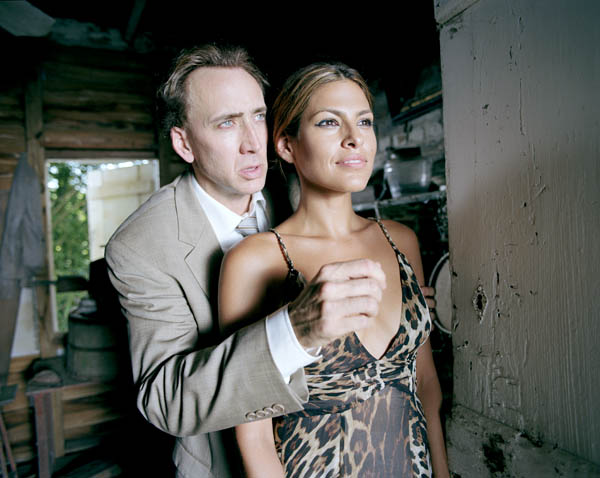|
Reviews of Recent Independent, Foreign, & Documentary Films in Theaters and DVD/Home Video

BAD LIEUTENANT: PORT OF CALL NEW ORLEANS Lieutenant Terence McDonagh (Nicolas Cage) hurt his back permanently saving a man drowning in a prison cell during the post-Katrina flooding in New Orleans. Because of this, he takes painkillers and copious amounts of anything he can get his hands on: coke, crack, heroin, you name it. Years later, he's investigating the execution-style murder of an entire Senegalese family, a crime that may be linked to a kingpin, Big Fate (Alivin “Xzibit” Jones). In his spare time, his gambling debts mount, and on occasion, he stops young couples at night to confiscate their drugs and get a fix. And is that all, one might ask? No, it isn't, not in director Werner Herzog's hands. He would be the last person in my mind to direct Bad Lieutenant: Port of Call New Orleans, especially after the bar was set in 1992 by Abel Ferrara’s Bad Lieutenant with Harvey Keitel. He's never made a sequel (or remake or revision or whatever this is), a real film noir, or worked with a big Hollywood star (at least bigger than Christian Bale in Rescue Dawn). And my expectations lowered after hearing Cage's involvement; he's been in a series of stinkers in the past few years (Wicker Man, anyone?), and the theatrical trailer looked as insane as anything else he's made in the past several years. But within the first 10 minutes of the film, I knew this was going to be more than I expected. It turned out to be inexorably tense and masterfully screwball, a bit strange in many scenes, without becoming too bizarre. It's as if Herzog realized the screenplay by TV writer Finkelstein (his first produced screenplay, in fact) needed to go further than the average cop drama or even tragic-comedy. Most often when you laugh, you’ll also cringe—it's not totally certain whether the scene is supposed to funny or dramatic. The film walks a tightrope between the comedic and crime drama, and the result is staggering. (In its own way, this variable tone is truer to life.) We see the desperation of a cop on the edge, but we also catch reactions from those around McDonagh that make the film realistically funny. It's pure genre subversion. In one scene, McDonagh makes a surprise appearance (hiding behind a door) at a nursing home to interrogate a caregiver as to the whereabouts of her grandson. She claims she doesn't know anything, and this makes the lieutenant—on "an hour and a half of sleep in three days, so I'm trying my best to be cordial," as he says—to snap again. McDonagh approaches the other little old lady next to her, squeezes her breathing tubes, and points his gun at her until the other woman answers his question. Seeing that scene out of context you might not know what to think. Are we supposed to take this over-the-top scene seriously? What to make of Cage's bug-eyed facial expression, with his mouth twitching and his back curiously hunched over (it's like this for the whole movie)? Herzog is no stranger to the eccentric in his films, but for Cage, it's a return to form, back to his days playing tortured protagonists (Leaving Las Vegas, Bringing Out the Dead). The
atmospheric location of New Orleans is filmed in a mix of styles, as a
conventional crime film with pure Herzog moments, such as a shot lingering for
a full minute on iguanas that only a drugged-out McDonagh can see. The
film will attract curious audiences, but if some may be a
little unsure if the director of classics like Fitzcarraldo can
make a sequel-remake with creativity, here's one more thing to entice
a skeptical viewer. In a big shoot-out scene, there's a pause after
the guns go off. Three bodies lie on the floor, but McDonagh shouts out, "Shoot him again!" "Why," asks Big
Tate. He responds, "His soul is still dancing," and at this we see a
man breakdancing to the harmonica-blues music from Herzog's Stroszek
(1977). It's quite simply the funniest self-parody in recent
memory. Jack Gattanella
|

